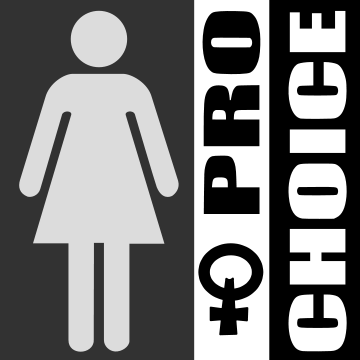When Emotions Stall Political Change: The case of abortion and health care reform
 While abortion is certainly a hot-button issue on the American Political Scene, the fervent debate over the topic – mostly fueled by a clash between liberal and conservative, predominately religiously-oriented moral entrepreneurs – faded into the background after the presidential election season. In short, abortion is an issue that, while always central for some, tends to become peripheral outside of election seasons, during which candidates of both parties accuse one another of either caring too little for life or of obstructing a woman’s right to choose. However, of late, the health care debate has re-ignited the passions of pro-life activists and politicians who seek opposition to the constitutional right of a woman to cho
While abortion is certainly a hot-button issue on the American Political Scene, the fervent debate over the topic – mostly fueled by a clash between liberal and conservative, predominately religiously-oriented moral entrepreneurs – faded into the background after the presidential election season. In short, abortion is an issue that, while always central for some, tends to become peripheral outside of election seasons, during which candidates of both parties accuse one another of either caring too little for life or of obstructing a woman’s right to choose. However, of late, the health care debate has re-ignited the passions of pro-life activists and politicians who seek opposition to the constitutional right of a woman to cho ose whether or not to carry a pregnancy to term. What makes this instance of this on-going clash less quotidian than the usual back and forth over when life begins or whether the rights of a mother or fetus are more important is that it is being used to stall political change in the form of health care reform.
ose whether or not to carry a pregnancy to term. What makes this instance of this on-going clash less quotidian than the usual back and forth over when life begins or whether the rights of a mother or fetus are more important is that it is being used to stall political change in the form of health care reform.
The debate over a woman’s right to choose is a moral debate with a long history in religion, philisophy and even in the formation of the modern medical profession. Emotions are elicited in the face of moral issues and abortion is one that tends to get people’s blood boiling. For the pro-life camp, the idea that a life would be terminated is offensive. For the pro-choice camp, the idea that a woman would not have a right to chose the fate of her own body and make decisions on her own behalf is offensive. The heated debates between pro-life and pro-choice groups are evidence enough to show the deeply emotional nature of this subject.
So, what’s the point? The intertwined nature of morality and politics often leads to the stalling of reform – in this case, as I argued earlier this year, the stall would be on reform the country desperately needs. The idea that a moral issue will stall perhaps the greatest chance we have to do an even greater moral deed – provide people the health care that they need, so they won’t die – is striking. The possibility that a government option (that we don’t know yet will be available) could pay for abortions is keeping us from providing Americans who are dying, with the care they need. I bring this up as an important issue not to denigrate the pro-life advocates who object to this possibility, but to show how our emotions are always involved in politics and that, if we do not pause to think about how they operate and affect the political process, we will not be able to understand and effectively analyze the social and political change or the driving forces behind it. If we go on ignoring the fact that emotions are central in the political process, we ignore perhaps one of the greatest reasons why people rally behind political causes – or stand in the way of political reform.





Emotions are surely key–I would encourage you to also think about whose emotions and whose health are factors in this political debate. This should also be a question we ask ourselves when there is an outcome (or the absence of an outcome). Who’s health and bodies will be impacted by policies enacted, and who’s health and bodies will remain free? These are also a source of emotional dimensions in a society rife with racism and classism.
Keri
I agree – that’s part of what I mean by emotions dictating, or at the very least, influencing decision-making in the political realm. For instance, pro-life groups essentially argue that the emotions of the mother are irrelevant if it’s at the expense of a fetus. Certainly only some people’s emotions are considered, while others’ feelings, opinions, etc. are brushed aside. In this post I was thinking more in terms of what I might actually call “political emotions” but I think that looking at the outcome and who’s emotions are actually taken seriously or protected is another extremely important issue. In general, attacks on abortion rights get at the heart of attacks on women’s rights. I would only add to your comment that sexism, in this case, is a major contributing factor because abortion is being used as the issue to stall health care. However, if we pause and think about who is most likely to be affected by the lack of health care reform, then I certainly agree that other realms of inequality such as those created by classism are extremely important to unpack.